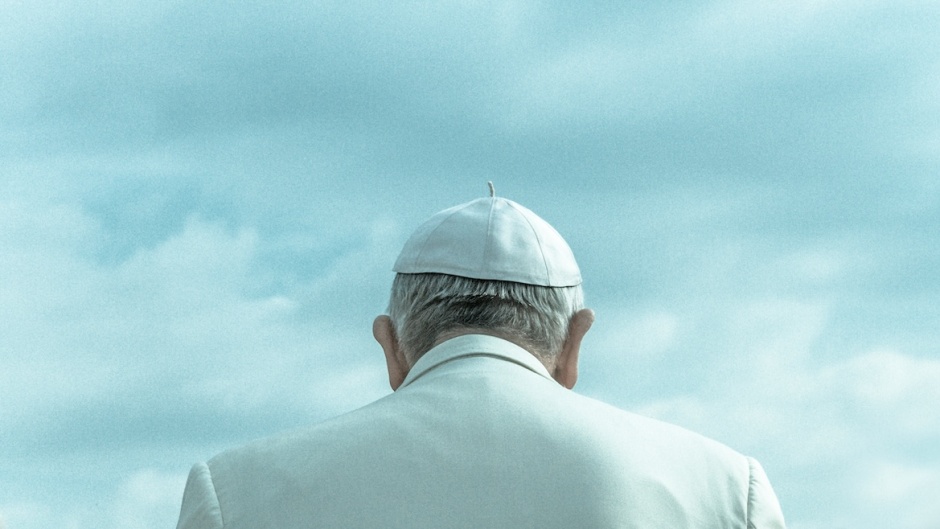“Francis seemed so close, yet he was so far away from the gospel”
Theologian and pastor Leonardo De Chirico, a world specialist on Roman Catholicism, analyses the Pope's legacy.
ROME · 21 APRIL 2025 · 20:55 CET

The death of Pope Francis is causing a cascade of reactions and opinions around the world, as he is a figure of global influence.
The evangelical world is no stranger to this. He is perhaps the Pope who has been closest to evangelicals, so it is important to consider his legacy carefully.
Leonardo de Chirico, an Italian pastor and theologian, has studied contemporary Roman Catholicism for three decades, writing and speaking internationally on the relationship with Catholicism and its theology.
His reflections are translated into several languages and published in various media around the world. In Protestante Digital, his articles are published in the Sunday magazine 'Desde Roma'.
Spanish news website Protestante Digital contacted Leonardo de Chirico to get his first reaction to the death of Jorge Mario Bergoglio.
Question. What do you consider to be the most important doctrinal legacy of Pope Francis for the Roman Catholic Church?
Answer. He was not a doctrinal Pope he didn’t like professional theologians. He thought that doctrine is an evil device and a waste of time if it becomes a check to admit some and reject others.
His own theology can be summed up with the slogan: “all all all”: catholics of every strip, non-catholics, Jews, Muslims, people of no faith, we are all brothers and sisters.
“All brothers” is the encyclical that perhaps will mark the Roman Catholic church for some time. Francis stretched the catholicity (inclusion) and minimized the Romanity (traditional outlook) of Roman Catholicism.
Having said that, he had his own doctrinal agenda that was twofold: first, giving the impression of not changing the traditional teaching of the Catholic Church (e.g. on women priests); second, introducing all kinds of ambiguities that obscured catholic teaching and practices.
Do all religions lead to God? Can you be a Catholic the way you want (divorced, having sex outside of marriage, non-practicing, not caring much)? Do magisterial and canonical boundaries still matter? Is sacramental repentance necessary or it is a commodity for Catholics?
To these questions Francis’s answers were purposely clumsy. His desire was to affirm all, wanting his Church to be the “field hospitaly” where we are “all brothers”.
Q. How has the emphasis on fraternity and interreligious dialogue transformed Catholic identity during his pontificate?
A. When the Pope spoke of “unity”, he did not have in mind unity among Christians according to gospel criteria. He thought of the unity of mankind as a “polyhedron”.
For him, ecumenism and inter-faith dialogue were two ways of saying the same thing: “we are already one; let’s pray and walk together”, e.g. with non Catholics, with Jews, with Muslims.
His pontificate began with the exhortation “The Joy of the Gospel” calling his church to mission, but mission for him was to go out and affirm all where they are. This global embracement was the gospel for him.
Q. What impact has the “shift towards the Global South” had on the politics and future of the Catholic Church?
A. Francis was elected to help Rome grow in the Global South while the West is going through a tense relationship with the Roman Church.
His pastoral attention and international travels concentrated on it. Statistics say that, while decline is the reality in the West, Rome is growing in the Global South.
However, the Global South (especially Africa) is rather conservative in its moral theology and negatively reacted against some “openings” made by Francis on the blessing of same sex couples and the admission to the Eucharist to divorced couples.
If you see the number and the provenance of cardinals made during his pontificate, there is no doubt that Francis has made his Church more “global” and less “Western”. We will see what will happen in the upcoming conclave.
Q. Do you believe the synodal process initiated by Francis will truly change the Church’s power structure, or is it more symbolic than effective?
A. As a Jesuit, Francis liked to initiate “processes”, not really knowing what the outcomes would be. After encouraging the German synodal path, he became scared of the predictable results (e.g. ordination of women priests, same-sex marriages) and stopped it.
At the same time, he began a synodal process for the whole Church using big words (e.g. “an upside down authoirity structure”) very much up in the air. Up to now, it looks more about a bureaucratic conundrum than anything else.
Q. How do you assess Francis' gestures of rapprochement with evangelicals? Have they led to real change or were they mainly diplomatic gestures?
A. Francis showed kindness towards evangelicals. The same attitude was expressed to liberals, eastern orthodox, and other religious groups. He seemed to come close to everybody and gave the impression to all that he was close to them.
He knew the “evangelical” language and practices (e.g. “conversion”, spontaneous prayer). Some evangelicals were impressed by this attitude and exchanged it with an “evangelical” ethos.
In fact, he did the same with all other people, always repeating the same message: “we are already brothers and sisters, let’s walk together and pray together; formal and perfect unity will come”. He seemed so close, yet he was so far away from the gospel.
Join us to make EF sustainable
Learn all about our #TogetherInThisMission initiative here (English).
Published in: Evangelical Focus - europe - “Francis seemed so close, yet he was so far away from the gospel”
